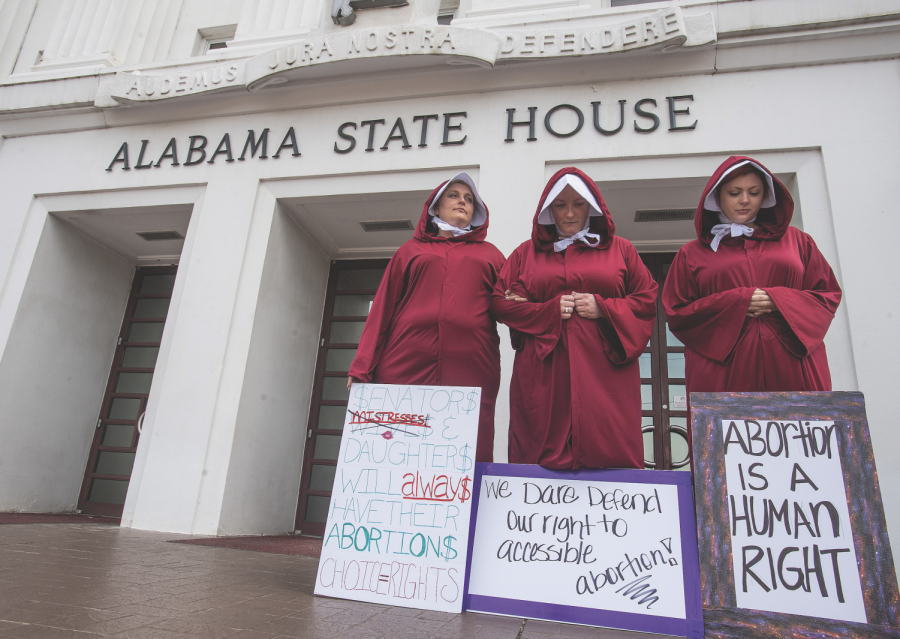States pass anti-abortion laws
Photo Mickey Welsh Montgomery Advertiser
Protesters outside of the Alabama State House
On May 14, Alabama Governor Kay Ivey signed the Human Life Protection Act, which proposes banning all abortions in the state that do not put the life or health of the mother at risk. This bill, also known as HB 314, would criminalize abortion and attempted abortion except in the previously stated cases.
If this law in Alabama were to go into effect, women who get abortions would not be prosecuted for their actions, but the doctors who performed the abortions would.
The creators of HB 314 hope that it will reach the Supreme Court in order to overturn Roe v. Wade. In Roe v. Wade, the Supreme Court ruled that abortion should be legalized in all 50 states during the first and second trimesters.
While states like Alabama could have created restrictions like these at any time in order to overturn Roe v. Wade, according to CNN, they waited until now because the current Supreme Court tends to be more conservative than it has in the past. With the induction of the most recent nominee, Justice Kavanaugh, the court is now the most right-leaning that it has been in recent years. The current group of justices provides pro-lifers a chance for Roe v. Wade to be overturned, as opposed to the lower likelihood of this occurring under a more liberal court.
Alabama is not the only state that has proposed bills of this nature. In early May, Governor Brian Kemp of Georgia signed the “heartbeat bill,” also known as HB 481, which would prohibit the abortion of a fetus after its heartbeat becomes detectable. Although this law is less restrictive than the proposed total ban in Alabama, the danger that it brings for women regarding jail time is greater.
HB 481 would allow the government to investigate miscarriages and potentially deem them as abortions. This means that women who miscarry could potentially be prosecuted.
Under this law, doctors in Georgia would have to refuse to perform abortions on women after six weeks, which is around the time when many women first discover that they are pregnant. However, in Alabama, doctors would have to refuse abortions from conception.
Because of this refusal, women might turn to alternate, more dangerous methods, including self-induced abortions. The American College of Obstetricians and Gynecologists claimed in 2015 that there were over 700,000 Google searches regarding self-induced abortion in the U.S. The number of women who have attempted self-harm or induced-abortion is expected to rise in response to new anti-abortion bills.
Women nationwide are protesting the new bills. On May 22, a protest began in front of the Capitol building in Washington D.C. to draw attention to this controversial issue.
Additionally, according to CNN, CEO of Planned Parenthood Southeast Staci Fox has gone on record saying that the organization plans on protesting these bills as well. Their goal will be to slow the bills’ progress to the Supreme Court so that they take longer to be put into effect or overruled completely.
States including Arkansas, Indiana and Kentucky have followed Alabama and Georgia’s lead by restricting abortion with various other bills as well. The most extreme proposed bill was in Texas, and it stated that women could be sentenced to death for getting an abortion. However, according to The New York Times, this bill was rejected in April.
As of now, it’s possible that Roe v. Wade will be overturned. Citizens all across America are keeping tabs on the pressing issue.

